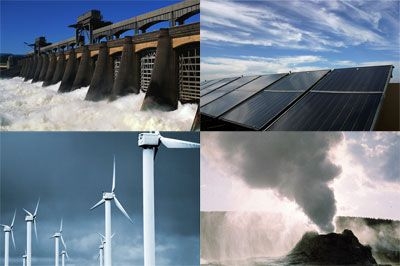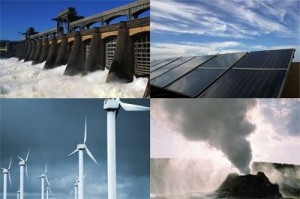
The Lost Discourse on Climate Change: The Need to Understand and Discuss it
 In a recent New York Times article, Daniel Yergin discusses the need for a new political discourse on energy. With the US rising as an energy producer and energy security now a closer reality for our country, the question remains: what about climate change? Where has the discourse gone? Why is it not being taken into account?
In a recent New York Times article, Daniel Yergin discusses the need for a new political discourse on energy. With the US rising as an energy producer and energy security now a closer reality for our country, the question remains: what about climate change? Where has the discourse gone? Why is it not being taken into account?
The discourse has fallen into the depths of political rhetoric. Climate change has become a second-tier political issue because of the focus on the struggling US economy and the American public’s demand for jobs. Both Republicans and Democrats refuse to even whisper the words, for fear of negative political consequences. Despite the attempts of politicians to look past it as an issue, climate change is occurring in the long-term, even if all of the effects are not immediately evident. Scientists are in agreement that the environment is changing and we as humans have played a part in that.
Skeptics often argue against climate change mitigation and adaptation measures because of the uncertainty and variability of climate change predictions. Skeptics argue that without 100% certainty of the effects of climate change, it is impossible to take action. However, when designing policies and strategies, worst and best case scenarios must be planned for. If the science says changes are occurring, we have to be prepared, regardless of the variability in the predictions.
Climate change is not a science experiment that can give measurable, immediate results. It is much more complex than that. It is deeply intertwined with food security, water security, migration and development. None of the issues mentioned are mutually exclusive. In developing nations, climate change acts as a threat multiplier, exacerbating pre-existing social, political and economic tensions. With the added pressure of climate change, these tensions may easily turn into small conflicts over food, land and water resources, thereby involving the US in giving more aid.
Although the US is the wealthiest country in the world, we are not exempt from the effects of climate change. Everything we take for granted in the US—infrastructure, agriculture, military bases, ports—are all built into a physical environment that is changing. As this environment changes, it will rattle the very core of our society.
Climate change must be part of the political discussion. It is a long-term issue that requires long-term planning. The US military is already incorporating climate change and vulnerability into security strategies, yet it is still left out of most political dialogues. In doing so, the US remains vulnerable to its effects, both in terms of our physical environment but also in terms of our national security.






Hello and thank you for this article. So-called environmentally induced migration is multi-level problem. According to Essam El-Hinnawi definition form 1985 environmental refugees as those people who have been forced to leave their traditional habitat, temporarily or permanently, because of a marked environmental disruption (natural or triggered by people) that jeopardised their existence and/or seriously affected the quality of their life. The fundamental distinction between `environmental migrants` and `environmental refugees` is a standpoint of contemporsry studies in EDPs.
According to Bogumil Terminski it seems reasonable to distinguish the general category of environmental migrants from the more specific (subordinate to it) category of environmental refugees.
Environmental migrants, therefore, are persons making a short-lived, cyclical, or longerterm change of residence, of a voluntary or forced character, due to specific environmental factors. Environmental refugees form a specific type of environmental migrant.
Environmental refugees, therefore, are persons compelled to spontaneous, short-lived, cyclical, or longer-term changes of residence due to sudden or gradually worsening changes in environmental factors important to their living, which may be of either a short-term or an irreversible character.
According to Norman Myers environmental refugees are “people who can no longer gain a secure livelihood in their homelands because of drought, soil erosion, desertification, deforestation and other environmental problems, together with associated problems of population pressures and profound poverty”.